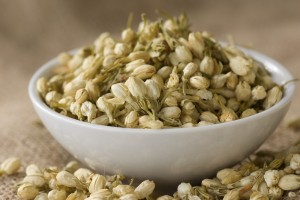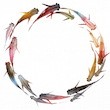Frequently Asked Questions about acupuncture
- What is acupuncture?
- How does acupuncture work?
- Is acupuncture safe?
- Is acupuncture painful?
- What does acupuncture treat?
- How many treatments will I need?
- What is Chinese herbal medicine?
- How safe are Chinese herbs?
- Do you take insurance?
What Is Acupuncture?
Acupuncture is one of the therapies of Traditional Chinese Medicine, with a written history in China of 2000 years, but dating back before recorded history. It is currently used by a quarter of the world’s population, mostly in Asia, and it’s popularity is growing rapidly in the west as scientific trials prove its efficacy. Acupuncture consists of the insertion of hair thin needles into specific points to regulate the systems of the body and alleviate pain. Acupuncture is used along with herbal medicine and dietary therapy to help the patient heal. Traditional Chinese Medicine is an effective and complete system of medicine, treating ailments throughout all the body’s systems.
How Does Acupuncture Work?
The classical Chinese explanation is that energy (Qi) runs in regular patterns through the body and over it's surface through meridians or channels, much like rivers holding water. When Qi flows freely, it nourishes the tissues and organs to promote optimal physical, spiritual, emotional, and mental health. An obstruction in the movement of these energy rivers is like a dam that backs up, preventing the body's energy from circulating and nourishing the tissues, causing pain, inflammation or disease. Needling the acupuncture points can unblock the obstructions at the dams and reestablish the regular flow of Qi through the meridians. Acupuncture treatments can therefore help the body to correct imbalances by improving the circulation of Qi through the meridians.
The modern scientific explanation is that needling the acupuncture points stimulates the nervous system to release chemicals in the muscles, spinal cord, and brain. These chemicals alter the experience of pain or trigger the release of other chemicals and hormones which influence the body's own internal regulating system. The improved energy and biochemical balance produced by acupuncture results in stimulating the body's natural healing abilities and in promoting physical and emotional well being.
Is Acupuncture Safe?
Yes. The acupuncture needle is an extremely fine (the width of a hair), disposable (one-use), sterile, FDA approved medical device. A licensed acupuncturist has undergone years of training in its safe implementation.
Is Acupuncture Painful?
When administered by a skilled professional it should not hurt. The hair-thin needles are nothing like the thick hypodermic syringes used for shots. The insertion can feel like nothing at all or like a slight pinch. After the needle is inserted there may be a feeling of tingling, buzzing or a warm feeling that will only last a minute or two. Many find it to be an enjoyable and deeply relaxing experience.
What Does Acupuncture Treat?
The World Health Organization recognizes the effectiveness of acupuncture in more than 100 medical conditions. To see the World Health Organization's acupuncture studies results click here.
The following is a list of health conditions commonly treated by licensed acupuncturists:
|
|
Acupuncture has been used for over 3,000 years in China to treat a wide spectrum of injuries and illnesses. Acupuncture efficacy has not yet been studied for all conditions. Acupuncture's safety and low cost make it a reasonable option for most conditions even when efficacy has not yet been researched through clinical trials.
Acupuncture can also be performed even when a standard modern medical diagnosis is unknown or has not yet been established. However, a prior diagnosis is preferred to identify conditions that may require additional treatment beyond acupuncture.
If you have questions about a specific illness or disorder not listed above, just call to ask about it or schedule a free 15 min. "meet and greet" appointment. I will be happy to answer any questions you may have, as well as discuss your diagnosis to see whether acupuncture may be appropriate for you.
How Many Treatments Will I Need?
The number of treatments depends on the patient's condition and could vary from two to twelve sessions, depending on whether symptoms are chronic or acute and on the patient's general physical vitality. Many acute conditions may require only a couple of treatments and some chronic degenerative conditions may require repeated treatments. The speed of progress with long-standing chronic issues is much determined by the patient’s willingness to live and eat well in conjunction with the treatment. For acute problems, usually less visits are required.
He that takes medicine and neglects diet, wastes the skill of the physician. — Chinese Proverb
What is Chinese Herbal Medicine?
 Chinese herbs are an important aspect of Traditional Chinese Medicine. The history of Chinese herbal medicine dates back even before the development of acupuncture. In fact, the origin of over 300 formulas commonly used today dates back over 2,000 years. Herbology in China has evolved through centuries of careful documentation of clinical experience. Today in China, herbs are often used instead of Western medications, or in conjunction with them to increase efficacy and reduce side effects.
Chinese herbs are an important aspect of Traditional Chinese Medicine. The history of Chinese herbal medicine dates back even before the development of acupuncture. In fact, the origin of over 300 formulas commonly used today dates back over 2,000 years. Herbology in China has evolved through centuries of careful documentation of clinical experience. Today in China, herbs are often used instead of Western medications, or in conjunction with them to increase efficacy and reduce side effects.
Herbs have a wide variety of actions and indications. They are used to treat chronic conditions such as arthritis, and acute disorders such as the common cold. Chinese herbs are prescribed in formulas that are specifically designed for the patient’s needs. The herbalist will make a diagnosis and prescribe a traditional formula that corresponds to the patient’s pattern and disease diagnosis. Chinese herbal medicines should only be prescribed by licensed acupuncturists. Sometimes a practitioner will prescribe herbal formulas on a short-term basis for acute ailments. For example, herbs for sinus infections may only be taken for a week or two. The length of treatment time for chronic diseases can vary from one month to several months. It depends on the nature and duration of the illness, as well as the patient’s ability to change lifestyle and dietary habits that may contribute to the illness.
Practitioners may prescribe herbal formulas that come in a prepared form, such as pills, tinctures, or concentrated granules. Or, if the right formulation is not available, the practitioner may create an individualized formula, consisting either of concentrated granules or bulk herbs, which are boiled into a tea. Herbal prescriptions may be changed frequently over a course of treatment in order to obtain the desired result.
How Safe Are Chinese Herbs?
Vitamins, minerals and herbal supplements have a tremendously safe track record. The most recent data comes from the U.S. National Poison Data System's annual report, which tracked data from 57 U.S. poison centers and showed herbs, vitamins and mineral supplements caused zero deaths in 2010. In striking contrast, drugs are known to cause well over 125,000 deaths per year when taken correctly as prescribed.
Recently there have been concerns raised about the purity of Chinese herbs in terms of their pharmaceutical, heavy metal and pesticide content. Reputable manufacturers of herbal formulas both in China and the United States test every batch of herbs for pesticides, fumigants and bacteria, and reject shipments if they do not meet strict standards. Though most prepared Chinese herbal formulas are safe, one should only take these preparations when prescribed by a health care provider who has undergone extensive training in Chinese herbal medicines.
For more information about drug-herb side effects, the manufacturing of Chinese herbal products and the safety of specific Chinese herbs go to http://www.itmonline.org/safety.htm.
For more information about the quality and safety of the herbs I use in my practice go to https://www.evherbs.com/evshop/index.php?option=com_content&view=article&id=74&Itemid=91.
Do You Take Insurance?
Your insurance may cover acupuncture depending on your plan and your provider. I accept most insurances. See a list of questions to ask your health insurance company when inquiring about acupuncture benefits.
Below is a list of some of the local employers whose health plans usually cover acupuncture:
- Apple
- Council on International Educational Exchange
- Maine Education Association
- Maine Health Employees
- Maine Medical Center Employees
- Martin's Point Plans
- National Semiconductor
- Portland City Employees
- Railroad Workers Union
- State of Maine Employees

